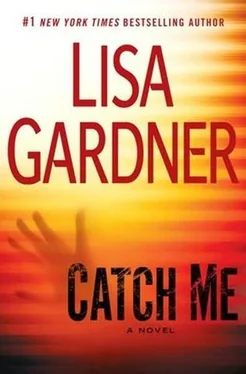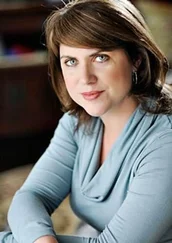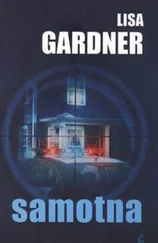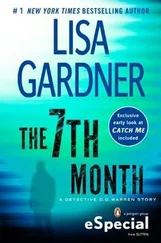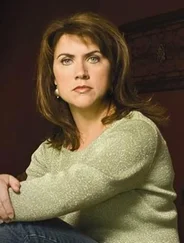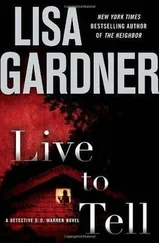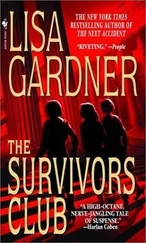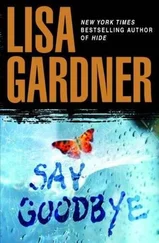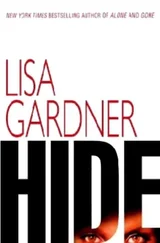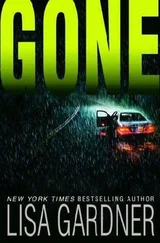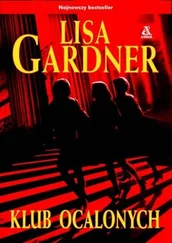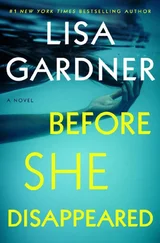“Why?” D.D. asked the question flatly. As if she already understood the answer mattered, was the real reason I now couldn’t let my friends go.
I took my eyes off my friend’s picture. I studied the detective and I started to understand the real meaning of being tough. The trait shared by Detective Warren and my firearms instructor J.T. and his wife, Tess.
They looked at life without blinders. They had the confidence to not dodge the blow, but stand there and take the hit.
“I was embarrassed,” I told the detective quietly. “I let us fall apart, because I didn’t just love Jackie and Randi, I knew that I loved them more than they loved me. So I never told them about my mother. If I had, then maybe Randi would’ve told us about her abusive husband. And Jackie and I would’ve helped her and we would’ve stood together, instead of scattering and dying apart. But I couldn’t tell them about my mom. I loved them so much, I couldn’t risk them thinking less of me.”
Detective Warren leaned forward, peered at me intently. “What should you have told them about your mother, Charlene?”
I held up my left hand. The fresh boxing bruises stood out starkly, bright purple kisses on the webbing between some of my fingers. But there were other markings as well, a patchwork of thin white scars zigzagging across my skin. They became more obvious in the summer, when I had a tan, than during the winter when, like most New Englanders, my skin was bone white. But I knew D.D. would spot the pale, spidery lines.
I murmured, “I think other people’s mothers don’t break bottles over the back of their little girls’ hands, so they can take their children to the emergency room and have the cute male intern tweeze out the broken glass. I think other people’s mothers don’t hold a hot iron to their daughters’ fingertips, so they can return to the same ER three days later, when the cute male intern said he’d be working again.”
“How old were you?”
“Young enough to go along, old enough to know better.”
“And this was in New Hampshire?”
“Upstate New York. That’s where I lived before my mother died. At which time, Social Services tracked down my aunt and asked her to take me. That’s how I met Jackie and Randi, first day of school. We sat side by side. And just like that, we were best friends. We did everything together-played, studied, worked, rebelled. Except then we turned eighteen, and they had dreams and I didn’t. So I let them go. And I didn’t call or check up or be the kind of friend I should’ve been, because I didn’t want them to know just how much I missed them. I was embarrassed, that all these years later I still loved them more than they loved me. And now…And now…”
I couldn’t get the words out. I just sat there and touched the digital image of my best friend who I’d never see again.
I should’ve told Randi everything. I should’ve told Jackie. I’d hoarded my secrets as a child, then Jackie and Randi had hoarded their secrets as adults. Randi had never told us about her abusive husband. And Jackie never confided in us that she was gay. I only learned that during the police investigation, when Pierce Quincy, the profiler Jackie had hired, let it drop, and I’d sat there stone-faced, willing no expression to show, because of course I would know such a thing about my best friend. Of course one best friend would feel comfortable enough to share such a personal revelation with another best friend.
The thin white scars on the back of my hand were the least of my concerns. It was the internal wounds that hurt me. My world had always been too small, first just me and my mother, then me and my aunt, then Randi Jackie Charlie. I’d always had too little. I’d always loved too hard. And I’d always lost too much.
Baby, crying down the hall.
I guess I’d had her, too, a baby I’d known I needed to protect. But I hadn’t, and now, I couldn’t even remember her name. So much for life without blinders. Twenty-eight years old and still taking daily dips in denial.
I didn’t want to be at police headquarters anymore. I wanted to go home to the mountains. I wanted to walk into my aunt’s house, throw my arms around her, and cry like a child.
I’m sorry, I’m sorry. I loved them and I failed and I just can’t do it anymore. It is too hard to walk through this life alone.
There was a knock on the door. Detective Warren and I both looked up. A woman stood in the doorway, wearing a cinnamon red sweater that showed off wavy locks of stunning reddish brown hair and an even more stunningly curved figure. A TV show cop, I thought instantly. The kind that solved the case, won the male lead, and celebrated both events with a new pair of Jimmy Choos.
I looked down at my nearly flat chest, then fingered my plain brown hair yanked back into a plain brown ponytail, and immediately felt self-conscious.
“Show her?” asked the woman.
“Just started. Come in. Detective O, this is Charlene Grant. Charlene, Detective O. She set up the page, being our resident Facebook expert.”
Detective O and I shook hands. She appeared to be about my age, which surprised me. Then I peered into her brown eyes and met a gaze as flat and frank as D. D. Warren’s. Cop eyes. Must be one of the requirements to graduate from the academy.
“Nice dog,” she said. She peered under the desk, where Tulip was curled up asleep.
“Not my dog,” I said automatically.
The detective stared at me, then at D.D.
“Not my dog either,” D.D. said.
“Well, that explains it.” O propped one hip against the desk. The office wasn’t big; we were now all crowded in, me sandwiched between two hard-edged Boston cops with better wardrobes and bigger guns. Somehow, I didn’t think that was accidental.
“What do you think?” the new detective gestured to the computer screen, voice brusque.
“I’m sorry?”
Detective O glanced at D.D. again.
“Haven’t gotten there yet,” D.D. said by way of explanation. “It’s your baby, so why don’t you do the honors.”
“All right,” Detective O began. “So…Saturday, the twenty-first, will be the second anniversary of Randi Menke’s murder in Providence.”
I flinched, said nothing.
“And the first anniversary of Jackie Knowles’s murder in Atlanta. Given the pivotal date, we thought we’d set up a Facebook page in honor of both victims and see if we can provoke a response.”
“How?”
“Jackie and Randi must have had other friends and acquaintances before you moved into town,” D.D. spoke up. “Did your arrival upset any of these relationships? Maybe displace another girl, create competition, social rivalry?”
I regarded her blankly. “I don’t know. We were eight. I’m not sure I was aware of social rivalries when I was eight.”
“What about as you grew up? You girls became the three musketeers. How did other girls take it?”
I still didn’t understand. “We weren’t mean. At least, I didn’t think of us that way. We weren’t bullies or anything. We just…played together.”
“What if other girls wanted to play?” Detective O asked curtly. “Would you let them?” There was a tone to her voice, almost an accusation. I found myself leaning away. Maybe it was a tactic she often used with subjects, but clearly she’d already found me guilty.
“You mean like in grade school?” I ventured. “Because I have vague memories of jumping rope and playing freeze tag, but lots of kids were doing it, not just us three.”
Detective Warren spoke up. “Let’s try high school. By the time ‘Randi Jackie Charlie’ hit high school, what was the social landscape like? Were you always together, or did you have other friends, other hobbies, sports, after school activities?”
Читать дальше
